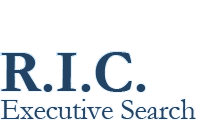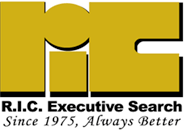A Better Way
Extraordinary lessons to improve your business
By Tom Welch
Why does your job exist? How quickly and accurately can you answer that powerful question?
You might recall that I recently wrote about Susan, a Senior Vice President of Finance at a major manufacturing company. She was disappointed in her performance, not executing well and her team was frustrated.
When I asked Susan that same question, she came up with her answer only after giving it considerable thought. “We exist,” she said, “to tell the current financial story of the business so we can help brainstorm and strategize the future state of the business.” Great job, Susan.
The reason it was so important for Susan and her team to answer that question is simple. Knowing your core mission is the starting point to improved effectiveness and efficiency. Once that mission is understood, you can then ask other probing questions, each of which will contribute to driving you and your team to superior performance.
Susan next asked her team a series of three questions.
- What are we doing that is not directly related to our core responsibility?
- Why are we doing that?
- Could we stop doing that?
The team’s answers to the questions were helping Susan make progress, not the least of which was getting her people to agree on the cause of various problems and the need for improvement. She discovered that roles, responsibilities and expectations were vague at best. Her team was also engaged in needless reporting and other redundancies.
On the plus side, this exercise was building trust within the team. Opinions were being heard and each member of the group felt like they were helping to make a difference.
Now it was time for a few additional questions. The first was this.
For those things we are doing that are directly related to our core responsibility, which of them are we doing well?
As the leader, it is important to determine what your team is already doing well. The debate among team members, in an effort to answer this question, is beneficial in and of itself because it gets the team communicating and analyzing processes and results. The answers help the leader initiate efforts to assure that the team keeps doing those things that are being done well. Armed with that knowledge, Susan asked the next questions.
What could we improve upon and what are our major barriers to success?
With each question, the group was getting better at coming up with ideas. They were not only more comfortable with the process, they were actually enjoying their part in developing improvements.
With answers to the final two questions, Susan was now ready to help guide her team in making four choices. The first two would be improvement areas that would have the highest impact on moving them closer to success. The next two would be barriers that, if removed, would have the greatest impact on the effectiveness of the team.
The reason that only two improvements and two barriers are chosen is this. No team can fix or change everything at once. That’s a recipe for failure. Focus on two in each category and your odds of succeeding skyrocket. When the first two get done, you can move on to others.
Finally, Susan asked her group to brainstorm solutions for accomplishing the improvements and removing the barriers. Specific plans were developed including the people who would be involved, the timelines and the measurements of progress.
The solutions were varied and included a few promotions, a transition of responsibilities from one person to another or one function to another, leadership improvement, training, identification of best practices and new methods of communicating.
Over the months, Susan’s team became more and more effective. She was a stronger leader and her team felt empowered and engaged.
Why not try the same methodology in your organization. See if you can find a better way.
Tom Welch, America’s Career Coach, is a leadership and peak performance expert. He is an executive coach to global leaders who want to accelerate business results. Tom helps people and organizations excel. Contact Tom at twelch@ricsearch.com or visit www.ricsearch.com
The preceding article originally appeared on tcpalm.com.

